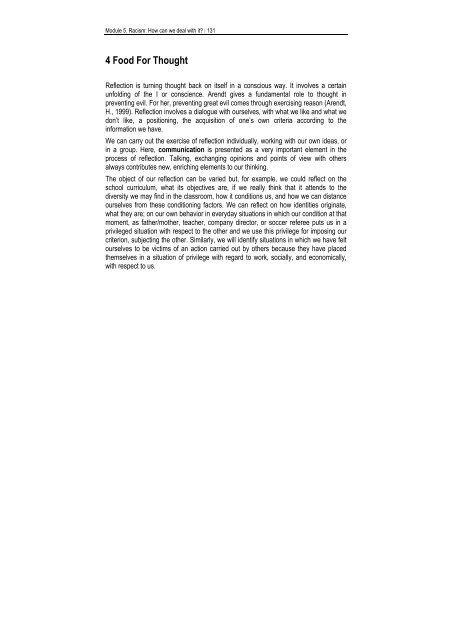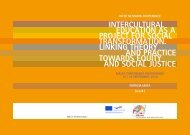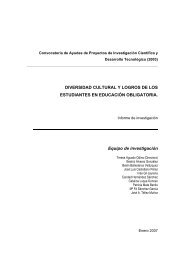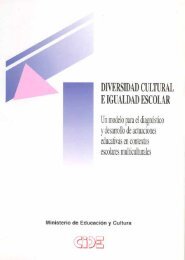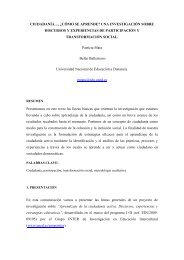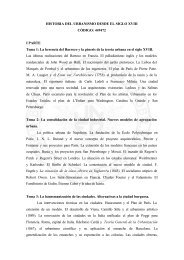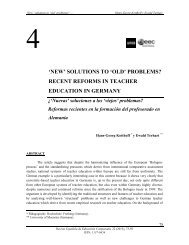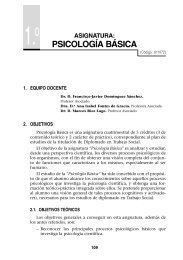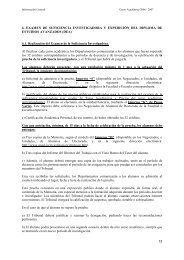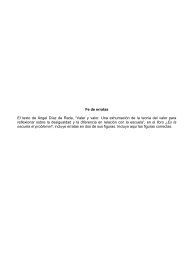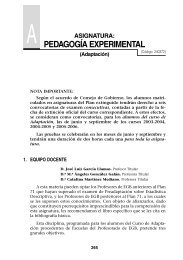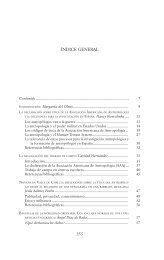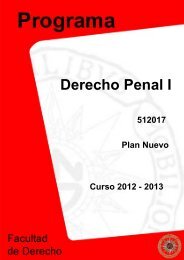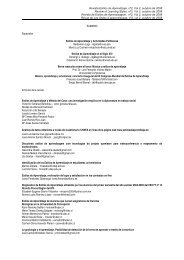Racism: What It Is and How to Deal with It - Uned
Racism: What It Is and How to Deal with It - Uned
Racism: What It Is and How to Deal with It - Uned
Create successful ePaper yourself
Turn your PDF publications into a flip-book with our unique Google optimized e-Paper software.
Module 5. <strong>Racism</strong>: <strong>How</strong> can we deal <strong>with</strong> it? | 131<br />
4 Food For Thought<br />
Reflection is turning thought back on itself in a conscious way. <strong>It</strong> involves a certain<br />
unfolding of the I or conscience. Arendt gives a fundamental role <strong>to</strong> thought in<br />
preventing evil. For her, preventing great evil comes through exercising reason (Arendt,<br />
H., 1999). Reflection involves a dialogue <strong>with</strong> ourselves, <strong>with</strong> what we like <strong>and</strong> what we<br />
don’t like, a positioning, the acquisition of one’s own criteria according <strong>to</strong> the<br />
information we have.<br />
We can carry out the exercise of reflection individually, working <strong>with</strong> our own ideas, or<br />
in a group. Here, communication is presented as a very important element in the<br />
process of reflection. Talking, exchanging opinions <strong>and</strong> points of view <strong>with</strong> others<br />
always contributes new, enriching elements <strong>to</strong> our thinking.<br />
The object of our reflection can be varied but, for example, we could reflect on the<br />
school curriculum, what its objectives are, if we really think that it attends <strong>to</strong> the<br />
diversity we may find in the classroom, how it conditions us, <strong>and</strong> how we can distance<br />
ourselves from these conditioning fac<strong>to</strong>rs. We can reflect on how identities originate,<br />
what they are; on our own behavior in everyday situations in which our condition at that<br />
moment, as father/mother, teacher, company direc<strong>to</strong>r, or soccer referee puts us in a<br />
privileged situation <strong>with</strong> respect <strong>to</strong> the other <strong>and</strong> we use this privilege for imposing our<br />
criterion, subjecting the other. Similarly, we will identify situations in which we have felt<br />
ourselves <strong>to</strong> be victims of an action carried out by others because they have placed<br />
themselves in a situation of privilege <strong>with</strong> regard <strong>to</strong> work, socially, <strong>and</strong> economically,<br />
<strong>with</strong> respect <strong>to</strong> us.


